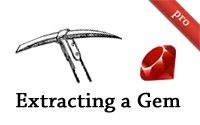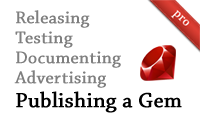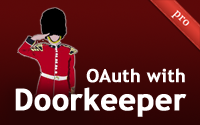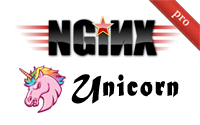Types
- Free Episodes
- Pro Episodes
- Revised Episodes
Categories
- Active Record
- Active Resource
- Active Support
- Administration
- Ajax
- APIs
- Authentication
- Authorization
- Background Jobs
- Caching
- Code Walkthrough
- Controllers
- Debugging
- Deployment
- eCommerce
- Forms
- Mailing
- Models
- Performance
- Plugins
- Production
- Rack
- Rails 2.0
- Rails 2.1
- Rails 2.2
- Rails 2.3
- Rails 3.0
- Rails 3.1
- Rails 3.2
- Rails 4.0
- Refactoring
- Routing
- Search
- Security
- Testing
- Tools
- Views
Extracting a Ruby Gem
In this episode I show how to extract a Ruby Gem from an existing Rails application, test it with RSpec and Supermodel, and add a Railtie.
(16 minutes)
Trinidad
Trinidad is designed to serve JRuby web applications and gives you the power of Java while still keeping the feel of traditional Rails deployment. Here I show how to setup a Capistrano recipe, configure it, and more.
(15 minutes)
Publishing a Gem
In this second part on making a gem, you will learn how to publish a gem by releasing it to rubygems.org, testing it through Travis CI, documenting it on RubyDoc.info, and advertising it on various sites.
(11 minutes)
OAuth with Doorkeeper
Doorkeeper makes it easy to create an OAuth 2 provider. This episode also shows how to setup OmniAuth as an OAuth client and use the oauth2 gem to communicate with an API.
(19 minutes)
Facebook Graph API
Learn how to use the Facebook Graph API with the Koala gem to fetch data from Facebook and post content through a user. Here I delve into permissions, error handling, and more.
(14 minutes)
Asset Pipeline in Production
The Asset Pipeline is very useful, but it can be a pain in production. Here I show why it works the way it does, and how to customize it to fit your deployment setup.
(13 minutes)
Nginx & Unicorn
Nginx and Unicorn make a killer-combo for hosting a Rails application in production. Learn how to configure each in a Vagrant virtual machine in this episode.
(19 minutes)







